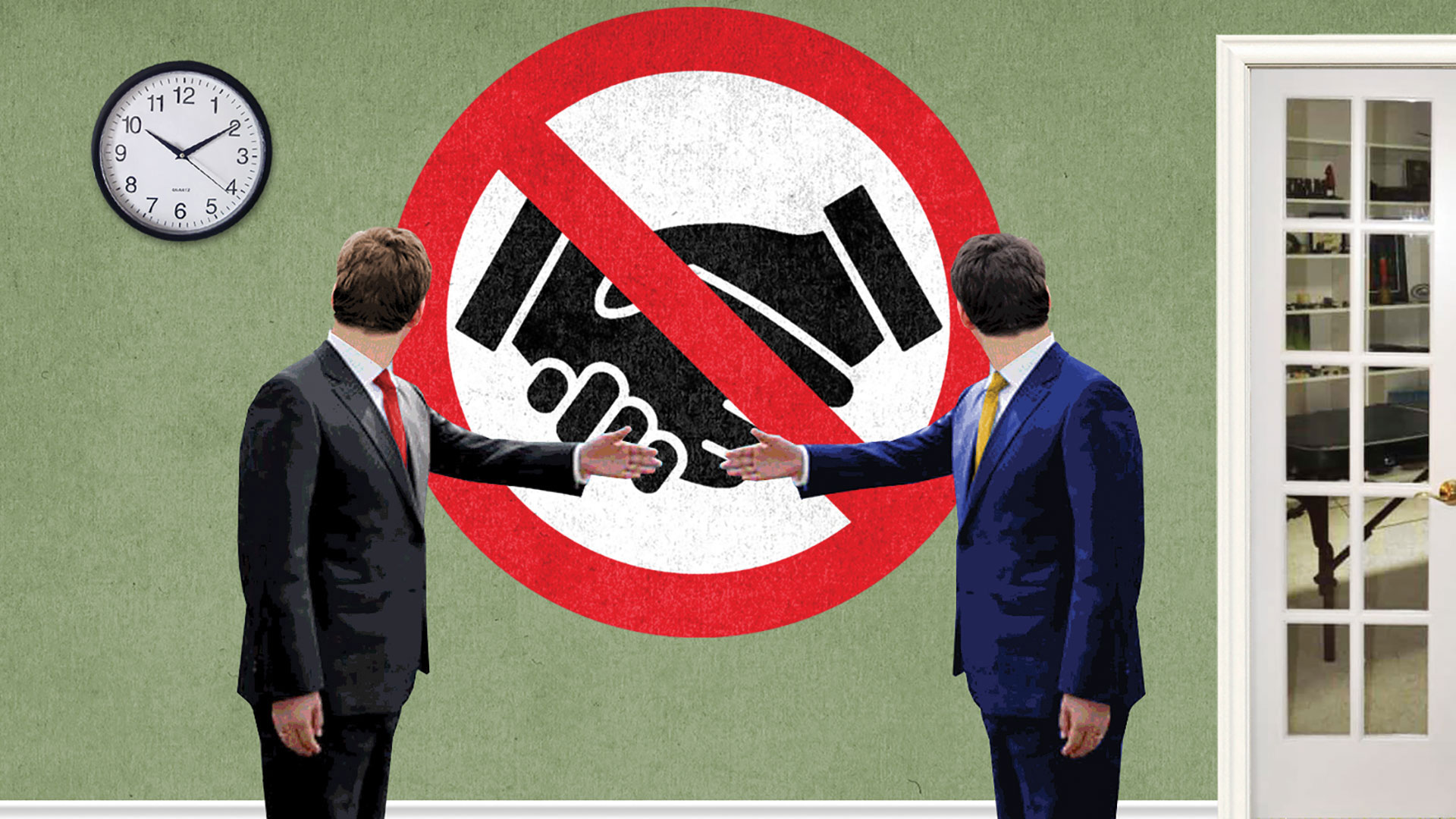It wasn’t just on these isles where the story’s presence was felt.
The New Zealand Herald reported on the same story, while it also attracted a somewhat unusual opinion piece on, of all places, Fox News in the USA. Greg Gutfeld bemoaned “Now, how do I know who is weird – if they’re banned from weirdness?”, then used the study to attack rival network CNN.
But is there any truth to an impending ban?
Facts. Checked
No, there isn’t.
All of the stories stem from the same study and also the same quote.
Total Jobs’ survey found that 76 per cent of workers want physical contact banned, ranging from workplace hugs as greetings, up to kisses on the cheek and more unsavoury behaviour.
Advertising helps fund Big Issue’s mission to end poverty
As for the handshake, it was billed as “the nations’ preferred choice of workplace greeting”.
The study found nearly half (45 per cent) of workers in their forties and fifties prefer handshakes, only 35 per cent of those in their twenties favour them with two fifths (41 per cent) preferring no physical contact when greeting colleagues or clients.
Similarly, Kate Palmer, an associate director at HR consultancy Peninsula, is the sole person quoted in all the stories. And even she seems pretty lukewarm on a ban coming into force.
She added: “I haven’t seen anywhere go as far as banning shaking hands, but there may be an employer who has gone as far as that.
“You’re probably safe with a handshake – unless your employer says otherwise. If there’s a rule, follow it.”
Hardly screams ban, does it?
Advertising helps fund Big Issue’s mission to end poverty
The underlining point of these stories has merit. The #MeToo movement has spearheaded a culture shift that has enabled women to speak out about sexual harassment and other behaviour.
And the suggestion is that has left employers fearing legal action so by removing the grey area and banning all contact, including handshakes, there is no question of a lawsuit.
According to research from workplace dispute body the Advisory, Conciliation and Arbitration Service (ACAS) and pollsters YouGov last year, the movement had made it very likely that four out of 10 workers would report sexual harassment in their workplace.
That attitude has been affected by international media coverage of the #MeToo movement, with a quarter of workers polled insisting that news reports had improved their workplace culture.
And 46 per cent of workers insisted that wider culture change would be more effective at handling sexual harassment.
That could well eventually extend to cutting out handshakes altogether.
Advertising helps fund Big Issue’s mission to end poverty
But as proof of them being axed right now, these stories are quite easy to palm off.
Image: Miles Cole










